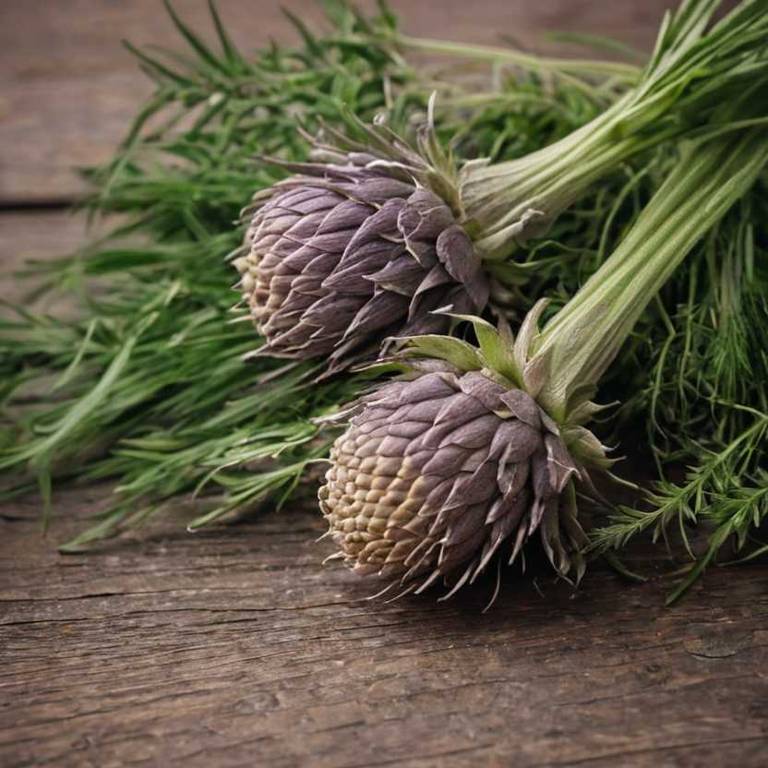Dipsacus Fullonum: What To Know Before Using It For Medicinal Purposes

Dipsacus fullonum, commonly known as teasel, has been traditionally used in herbal medicine for its potential therapeutic properties.
The plant's root and stem are often harvested and dried for use in tinctures and decoctions, believed to support kidney health and urinary function. It has been historically employed to treat conditions such as kidney stones, urinary tract infections, and inflammation. Some studies suggest that compounds in teasel may possess anti-inflammatory and diuretic effects, though more research is needed to confirm its efficacy.
Due to its historical use and potential benefits, teasel remains a subject of interest in alternative and traditional medicine practices.
Health Benefits
Dipsacus fullonum has several health benefits, such as its potential to support urinary tract health due to its diuretic properties.
It may also help in reducing inflammation and promoting kidney function, making it beneficial for individuals with urinary disorders. Additionally, it has been traditionally used to alleviate symptoms of respiratory conditions like asthma and bronchitis. The plant contains compounds that may enhance immune function and reduce oxidative stress in the body.
However, it is important to consult a healthcare professional before using Dipsacus fullonum, as it may interact with certain medications or have side effects in some individuals.
10 Best Health Beneift of Dipsacus fullonum
Bioactive Constituents
Dipsacus fullonum has several bioactive constituents, such as saponins, flavonoids, alkaloids, and phenolic compounds, which contribute to its medicinal properties.
These compounds exhibit antioxidant, anti-inflammatory, and antimicrobial activities, making the plant a valuable resource in traditional medicine. Saponins in Dipsacus fullonum are known to enhance immune function and may help in the treatment of respiratory and digestive disorders. Flavonoids contribute to its protective effects against oxidative stress and cellular damage.
Alkaloids and phenolic compounds further support its use in managing inflammatory conditions and promoting overall health.
Medicinal Preparations
Dipsacus fullonum has several medicinal preparations, such as teas, tinctures, and extracts, which have been traditionally used in herbal medicine.
Its roots are commonly dried and ground into a powder, which can be brewed into a tea to address various ailments. Tinctures made from the plant are often used to support urinary tract health and promote diuresis. In some traditional systems, the plant is also used in formulations to aid in detoxification and kidney function.
However, due to its potential toxicity, it is important to use these preparations under the guidance of a qualified herbalist or healthcare provider.
Side Effects
Dipsacus fullonum can have some side effects, such as gastrointestinal discomfort, including nausea, vomiting, and diarrhea, especially when consumed in large quantities.
It may also cause skin irritation or allergic reactions in individuals who are sensitive to plants in the Polygonaceae family. In some cases, the plant's compounds may lead to respiratory issues like coughing or shortness of breath. Long-term or excessive use might result in more severe effects, such as liver or kidney damage.
It is important to consult a healthcare professional before using Dipsacus fullonum for medicinal purposes.